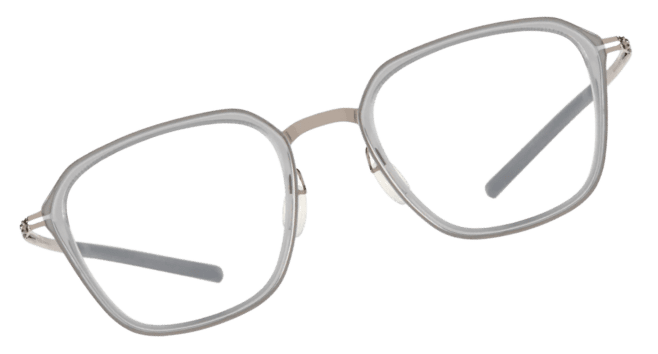
As we age, the lenses in our eyes lose their flexibility. This condition, known as presbyopia, typically affects those over 40 and is the reason many adults find themselves needing reading glasses for the first time. For those who already use corrective lenses, presbyopia can complicate vision needs, leading to the use of reading glasses with contacts, or the adoption of bifocals, trifocals, or progressive lenses.
Bifocals are essentially two lenses in one: the lower part of the lens helps with reading and close-up tasks (presbyopia), while the upper part corrects nearsightedness. Trifocals add a third lens for intermediate distances, useful for activities like computer work. However, bifocals and trifocals can create an abrupt “image jump” between different lens sections, which some find disorienting. Additionally, these types of glasses are often associated with aging, a stigma that might deter some from wearing them.
For those seeking a more seamless solution, progressive lenses offer a modern alternative. These lenses merge multiple prescriptions across a continuous surface, eliminating the visible lines and reducing the abrupt shifts in vision associated with bifocals and trifocals. Adjusting your view is as simple as tilting your head to focus through different parts of the lens.
Switching to progressive lenses can require an adjustment period. Here are a few tips to ease the transition:
– Resist the urge to revert to old glasses when discomfort arises, as this can delay adaptation.
– Ensure the “corridor of power,” the central part of the lens, feels natural; if not, the lenses may need to be adjusted.
– Practice focusing on objects at various distances to get accustomed to the lens progression—this can be done by alternating between watching TV and reading.
– Learn to move your head, not just your eyes, to achieve the clearest vision at different ranges.
If you notice difficulties focusing on close-up objects, consider consulting with us about whether progressive lenses are suitable for you. We can also ensure that any new glasses fit comfortably and suit your lifestyle. Come in with your questions and let us help you find the best solution for your vision needs. Contact US.
Get special deals, offers, and discount coupons.
